Abstract
As part of preliminary studies for the development of a digital library, we have studied the possibility of using the co-occurrence of MeSH terms in MEDLINE citations associated with the search strategies optimal for evidence-based medicine to automate construction of a knowledge base. We use the UMLS semantic types in order to analyze search results to determine which semantic types are most relevant for different types of questions (etiology, diagnosis, therapy, and prognosis). The automated process generated a large amount of information. Seven to eight percent of the semantic pairs generated in each clinical task group co-occur significantly more often than can be accounted for by chance. A pilot study showed good specificity and sensitivity for the intended purposes of this project in all groups.
Full text
PDF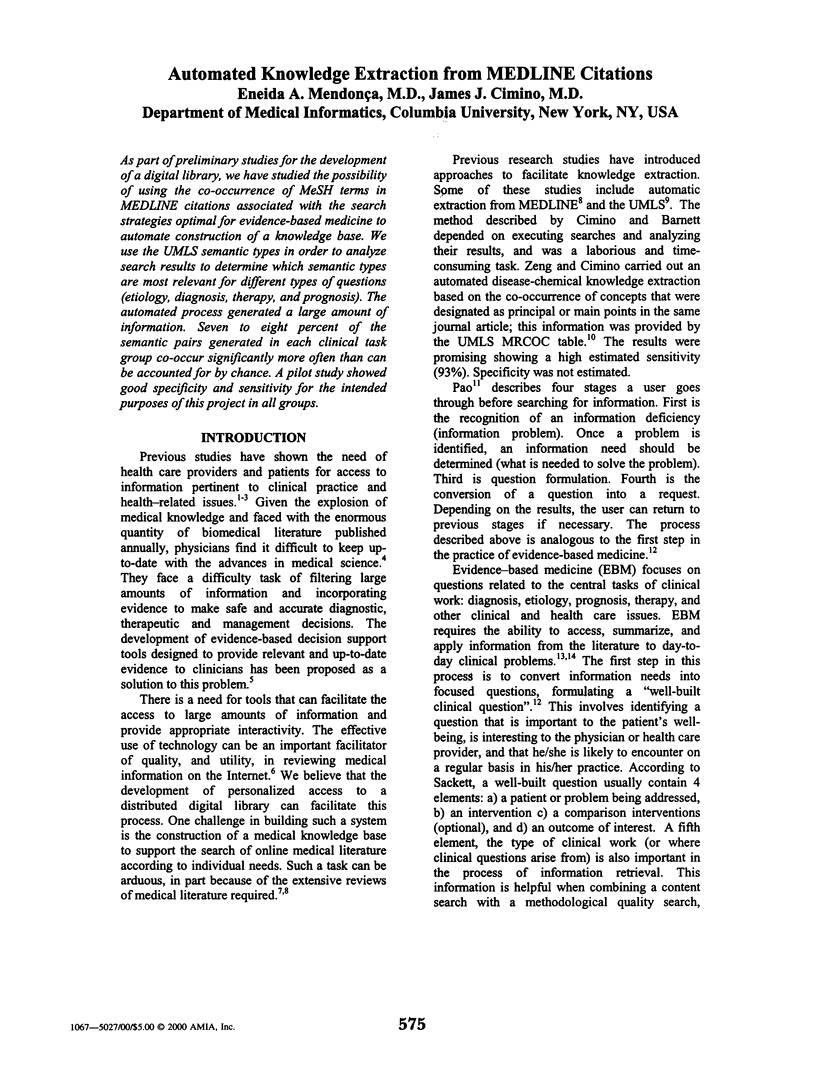
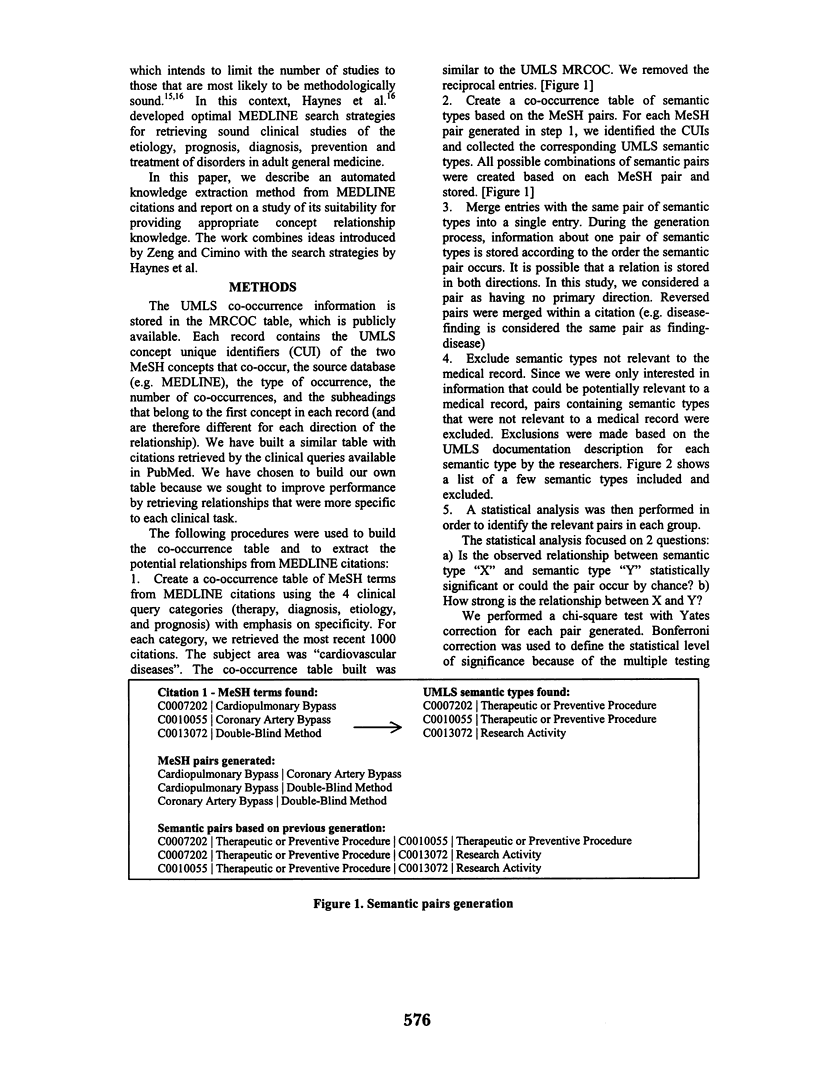
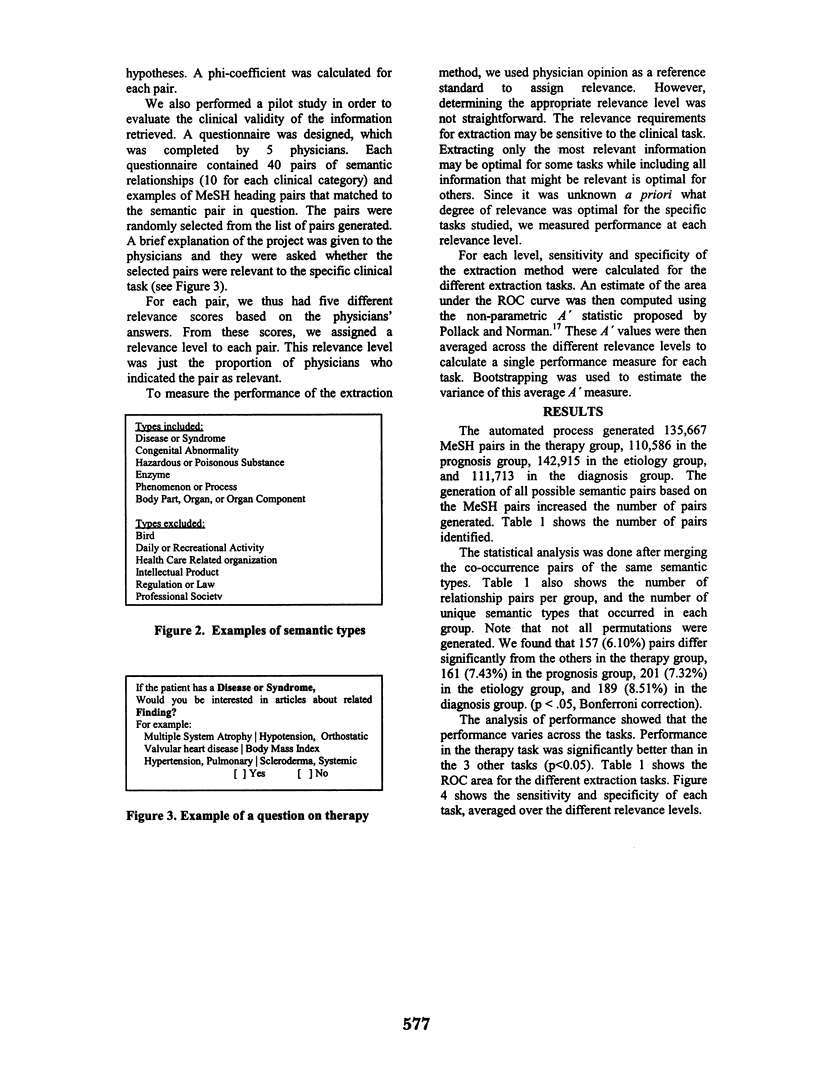
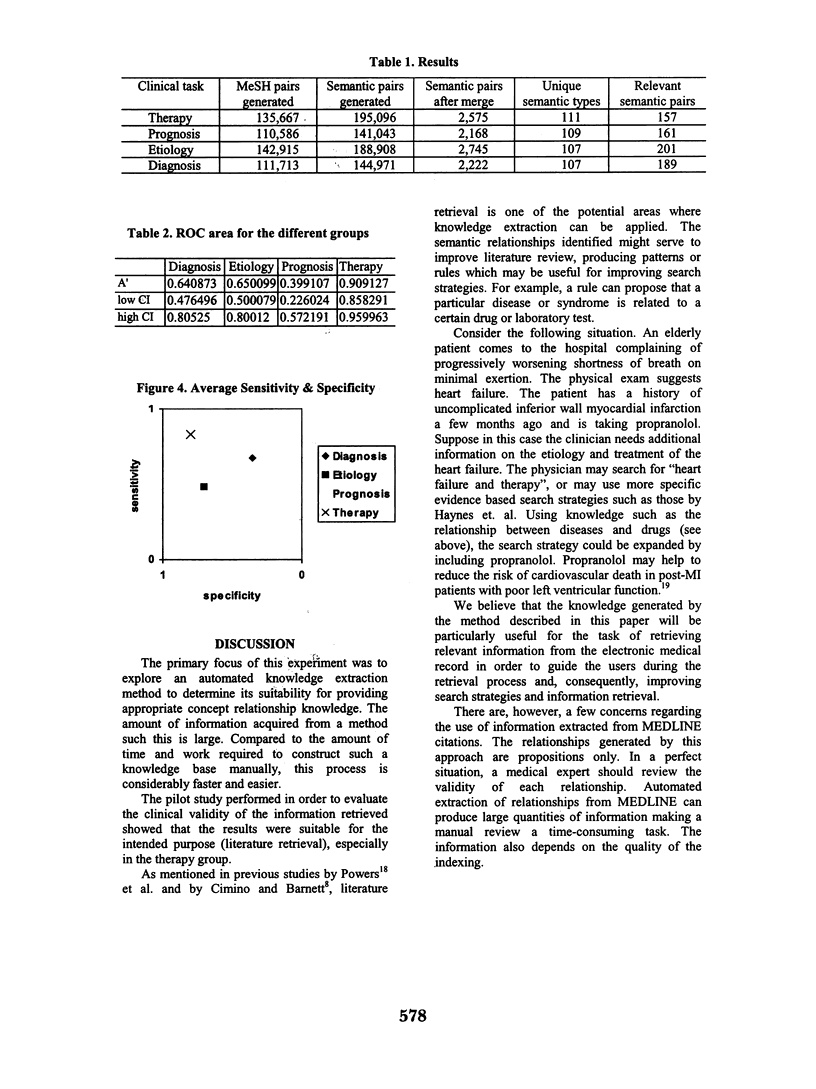
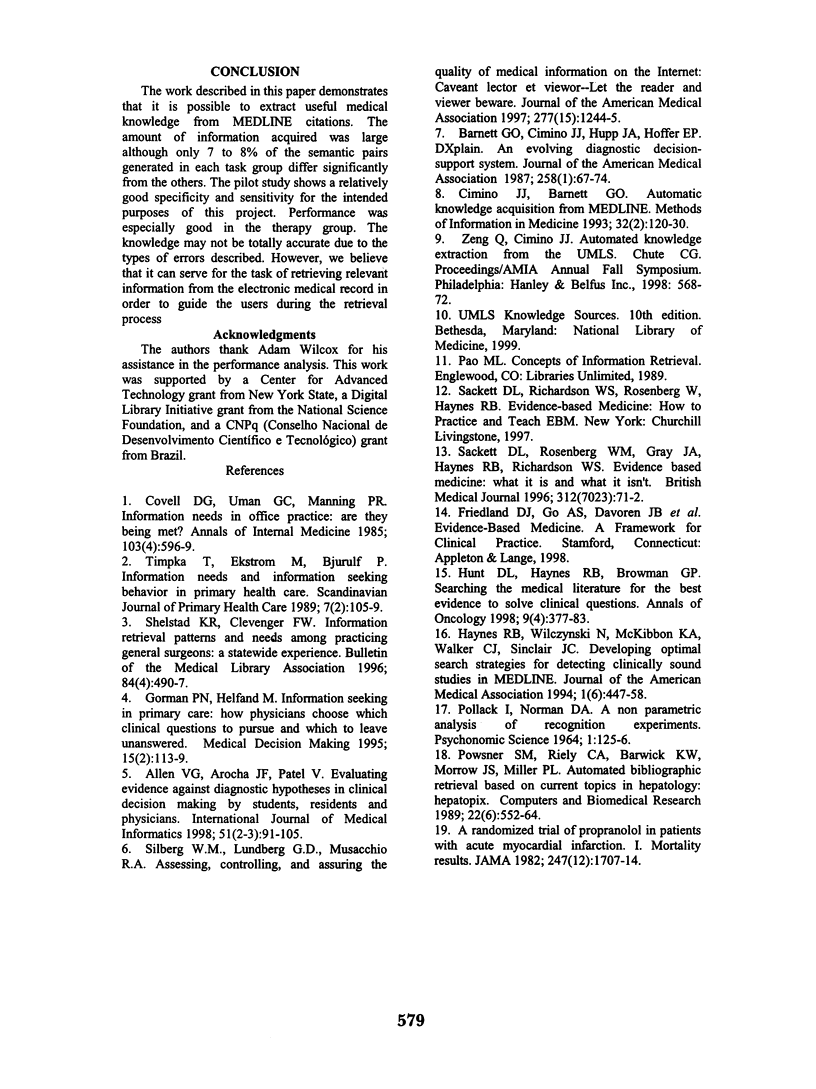
Selected References
These references are in PubMed. This may not be the complete list of references from this article.
- Allen V. G., Arocha J. F., Patel V. L. Evaluating evidence against diagnostic hypotheses in clinical decision making by students, residents and physicians. Int J Med Inform. 1998 Aug-Sep;51(2-3):91–105. doi: 10.1016/s1386-5056(98)00107-5. [DOI] [PubMed] [Google Scholar]
- Barnett G. O., Cimino J. J., Hupp J. A., Hoffer E. P. DXplain. An evolving diagnostic decision-support system. JAMA. 1987 Jul 3;258(1):67–74. doi: 10.1001/jama.258.1.67. [DOI] [PubMed] [Google Scholar]
- Cimino J. J., Barnett G. O. Automatic knowledge acquisition from MEDLINE. Methods Inf Med. 1993 Apr;32(2):120–130. [PubMed] [Google Scholar]
- Covell D. G., Uman G. C., Manning P. R. Information needs in office practice: are they being met? Ann Intern Med. 1985 Oct;103(4):596–599. doi: 10.7326/0003-4819-103-4-596. [DOI] [PubMed] [Google Scholar]
- Haynes R. B., Wilczynski N., McKibbon K. A., Walker C. J., Sinclair J. C. Developing optimal search strategies for detecting clinically sound studies in MEDLINE. J Am Med Inform Assoc. 1994 Nov-Dec;1(6):447–458. doi: 10.1136/jamia.1994.95153434. [DOI] [PMC free article] [PubMed] [Google Scholar]
- Hunt D. L., Haynes R. B., Browman G. P. Searching the medical literature for the best evidence to solve clinical questions. Ann Oncol. 1998 Apr;9(4):377–383. doi: 10.1023/a:1008253820228. [DOI] [PubMed] [Google Scholar]
- Powsner S. M., Riely C. A., Barwick K. W., Morrow J. S., Miller P. L. Automated bibliographic retrieval based on current topics in hepatology: hepatopix. Comput Biomed Res. 1989 Dec;22(6):552–564. doi: 10.1016/0010-4809(89)90075-x. [DOI] [PubMed] [Google Scholar]
- Sackett D. L., Rosenberg W. M., Gray J. A., Haynes R. B., Richardson W. S. Evidence based medicine: what it is and what it isn't. BMJ. 1996 Jan 13;312(7023):71–72. doi: 10.1136/bmj.312.7023.71. [DOI] [PMC free article] [PubMed] [Google Scholar]
- Shelstad K. R., Clevenger F. W. Information retrieval patterns and needs among practicing general surgeons: a statewide experience. Bull Med Libr Assoc. 1996 Oct;84(4):490–497. [PMC free article] [PubMed] [Google Scholar]
- Silberg W. M., Lundberg G. D., Musacchio R. A. Assessing, controlling, and assuring the quality of medical information on the Internet: Caveant lector et viewor--Let the reader and viewer beware. JAMA. 1997 Apr 16;277(15):1244–1245. [PubMed] [Google Scholar]
- Timpka T., Ekström M., Bjurulf P. Information needs and information seeking behaviour in primary health care. Scand J Prim Health Care. 1989 Jun;7(2):105–109. doi: 10.3109/02813438909088656. [DOI] [PubMed] [Google Scholar]
- Zeng Q., Cimino J. J. Automated knowledge extraction from the UMLS. Proc AMIA Symp. 1998:568–572. [PMC free article] [PubMed] [Google Scholar]


